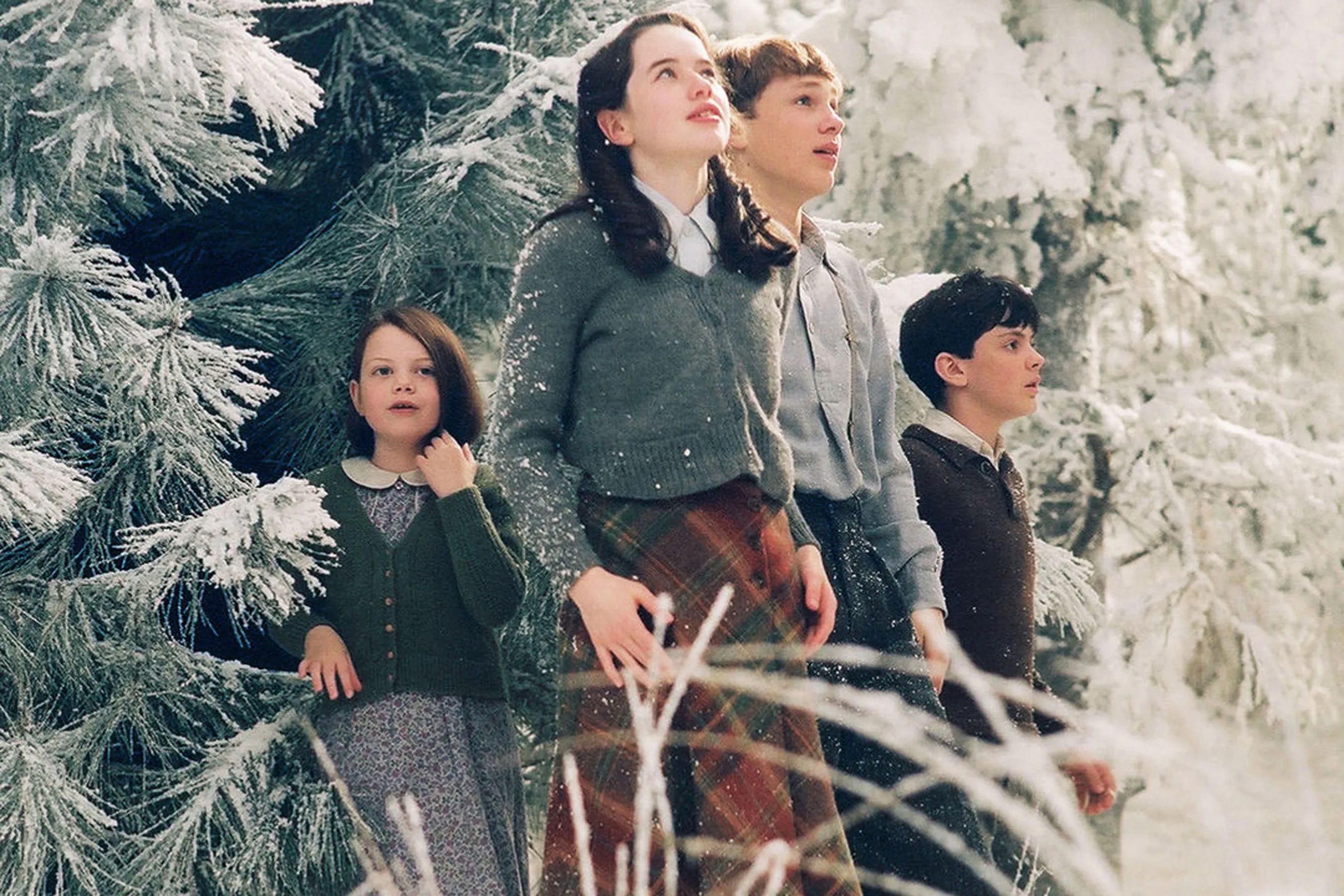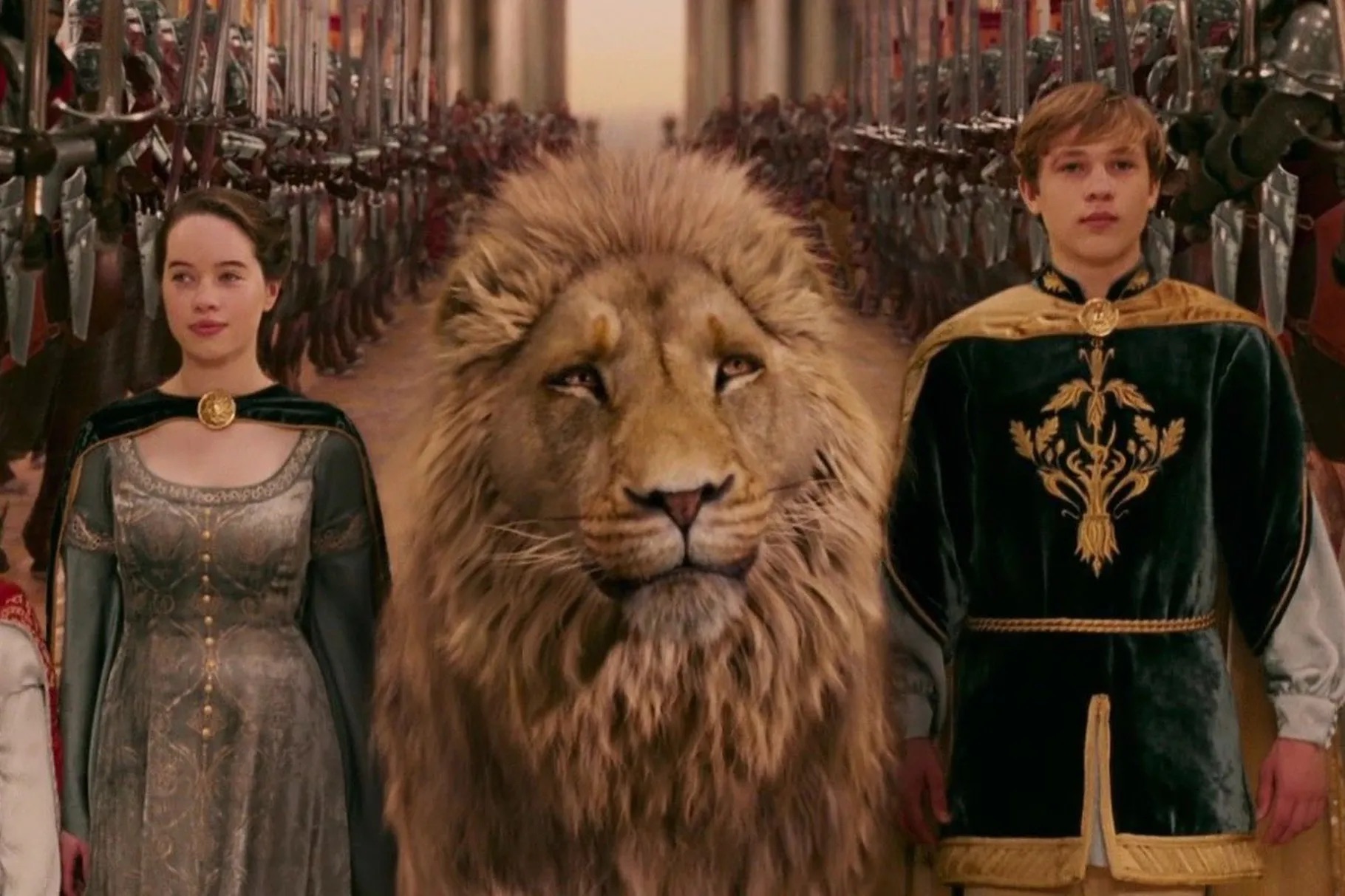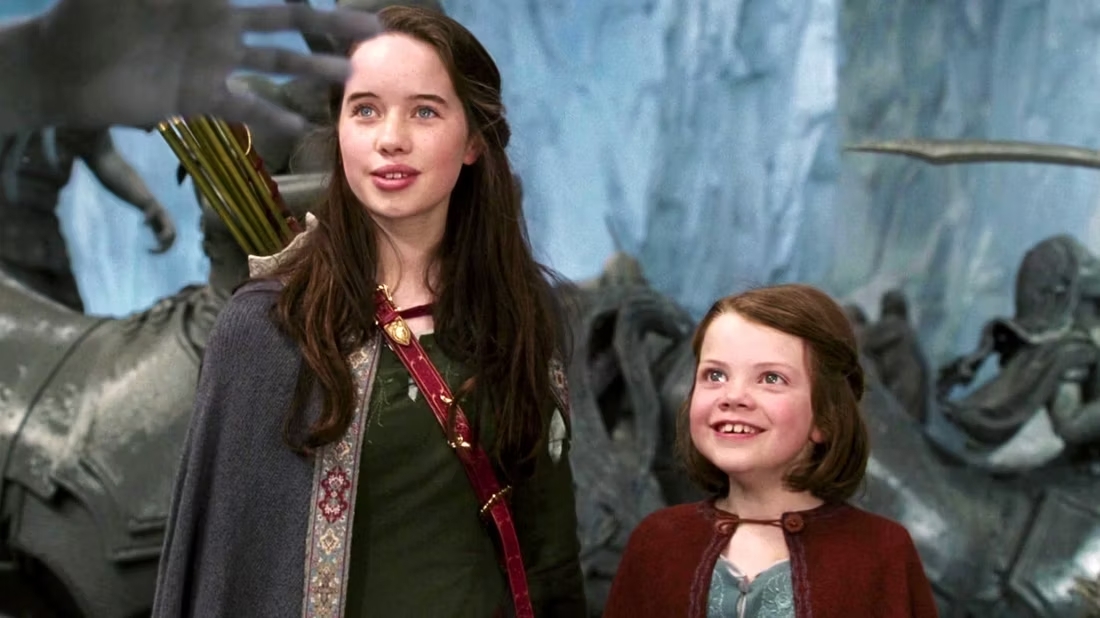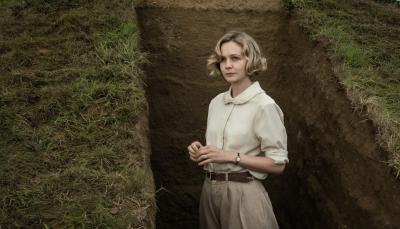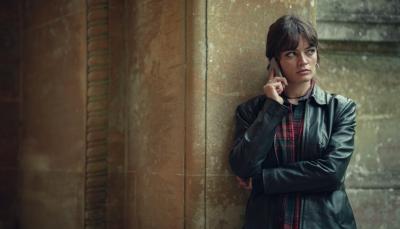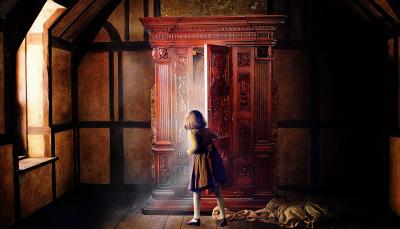Why Greta Gerwig Is the Perfect Choice to Revive the 'Narnia' Franchise
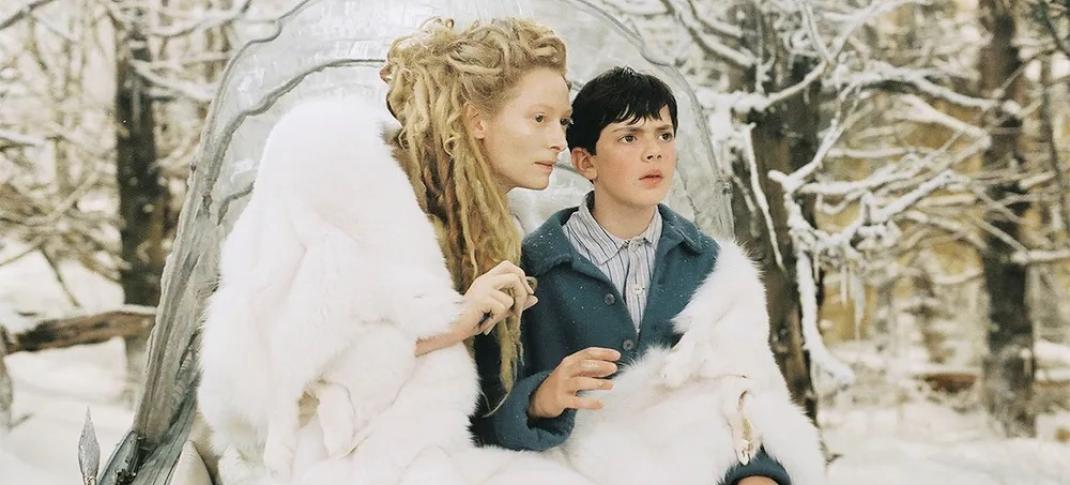
Tilda Swinton and Skandar Keynes in the 2005 Disney adaptation of "The Lion, the Witch, and the Wardrobe"
(Photo: Walt Disney Studios/Walden Media)
C.S. Lewis's The Chronicles of Narnia series is one of the most beloved pieces of children's literature of all time. The books have been in continuous publication since 1956 and have sold over 100 million copies in 47 different languages, spawning adaptations ranging from feature films and radio dramatizations to full-on stage musicals. The only surprise about the news that Netflix is working on a new adaptation of this classic fantasy saga is that we haven't had more of them in recent years.
Most of you are probably familiar with the short-lived Disney attempt to adapt all seven books as feature films in response to the popularity of the Harry Potter films in the early aughts. It began in 2005 with The Lion, the Witch & the Wardrobe and made it through the second and third books, Prince Caspian and The Voyage of the Dawn Treader, before studio money and theatrical interest ran out. Despite having obtained the rights to all the Narnia books, Netflix has thus far only committed to making "at least two" films, tapping director Greta Gerwig to helm the project and adapt the script.
While Barbie's existence (and boffo box office) proves that Gerwig can do anything, let's not forget that she's already successfully adapted a beloved children's classic to great critical and public acclaim. Her 2019 Little Women was widely praised for its sensitive retelling of Louisa May Alcott's original story and was nominated for six Academy Awards, including Best Picture. If there's any creative working today who is quite so uniquely positioned to attempt a new take on Narnia, it's Gerwig.
No matter which of the series’ seven novels she tackles — technically, the events of The Magician’s Nephew take place before Wardrobe, so it’s entirely possible she might start there — there’s really no director working today that’s as intriguing a fit for this franchise.
First of all, Gerwig herself is a fan of Lewis’s work, having read the books both as a teenager and later again as an adult. Her religious upbringing means she understands how essential the Christian themes are to the series. But her filmmaking style—evidenced by movies like Barbie and Lady Bird — is unlikely to lean too much into the heavy-handed Aslan-as-Jesus imagery, which can get overbearing fast. But mostly, it just seems like she gets the scope of the undertaking she’s been tasked with.
“I’m slightly in the place of terror because I really do have such reverence for Narnia,” she told BBC Radio 4. “I loved Narnia so much as a child. As an adult, C.S. Lewis is a thinker and a writer. I’m intimidated by doing this. It’s something that feels like a worthy thing to be intimidated by.”
Perhaps the most exciting thing about Gerwig’s involvement is how unabashedly feminist she is in her storytelling. Her movies consistently explore how girls learn to be women, or perhaps more specifically how girls learn to navigate societies that treat men and women differently. Her stories frequently ocus on young women coming into their own and claiming the agency that’s so often historically been denied to them. The possibility of seeing the world of Narnia through this kind of lens is positively thrilling, if only because no female character in children’s literature has been done as dirty as Susan Pevensie.
In Lewis's books, Susan's ending is one of the story's most problematic aspects. The series essentially abandons her, exiling her from a world she once helped rule and punishing her for something she couldn't help. Declared to be no longer a friend of Narnia and left behind in the real world, Susan is the one character who is not allowed to cross over into Aslan's country at the story's end, despite being a High Queen of Narnia and present at both Aslan's death and resurrection. Susan is cast out, and The Last Battle implies it was because she was too interested in the trappings of adulthood, in lipstick and nylons and boys, and that she has somehow become unfit by growing up.
Everyone else gets to be with Aslan — her siblings, her parents, all the friends she's made in Narnia and elsewhere — but not Susan. Instead, she must return to the real world, where she's forced to mourn the death of her entire family in a train crash and is ultimately left all alone. It's a brutal, cruel ending for her character, and though you can argue that surely she'll be readmitted to Aslan's realm after she dies, there's equally every reason to believe she won't. (And even if she is, does that justify how she's treated beforehand?)
Susan's ending is genuinely awful, and if any filmmaker seems equipped to reckon with her character and the wrong that's been done to her, it is Gerwig. After all, this is the same woman who gave the widely disliked Amy March the rich, sympathetic characterization that made even her biggest haters (read: me) reconsider their views after watching her Little Women.
Of course, there is also the infamous White Witch, known for her icy demeanor and predilection for bribing children with the world's most gross and offensive candy*. The fact that the most famous villain in Narnia is also a woman is something that we've never really seen an adaptation tackle in a way that likely felt authentic to female viewers. However, Tilda Swinton certainly did her best to give the character depth in the 2005 movie (and looked great doing it). Once again, Gerwig seems uniquely positioned to provide the White Witch with her dues without sacrificing any of the genuine menace and terror that are such an intrinsic part of her character.
(*Turkish Delight is nasty, and I will not be taking questions at this time.)
There are so many reasons to be excited about Gerwig's involvement in this project — look, if she can make an army of Kens sympathetic, there's no reason to worry about whether or not she can make Edmund relatable or Aslan less remote — but the most thrilling thing is that she'll undoubtedly find something new to say in this timeless story of love, sacrifice, and redemption. I can't wait to see what that is.
The first film in Netflix's The Chronicles of Narnia series begins filming in August 2024 and is expected to finish production in the spring of 2025. It is expected to debut on Netflix in late 2025 or early 2026.

